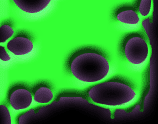Until recently, the identity of the author who penned the classic but puerile British novel, Beowulf, has been an enigma. However, since acclaimed British author Helen Fielding's latest publication, the Bridget Jones Diary, hit the literary world like a hard smack on the bottom, the obvious has become obvious - Helen Fielding is the one and only "anonymous" author of Beowulf.
There are too many similarities between the two books for it to be a coincidence. Most experts now agree that Fielding is the author of both Beowulf and BJD, although she will provide no comment.
There are many obvious arguments, but the most convincing by far is the sometimes unnoticed fact that both of the protagonists names begin with B! Beowulf and Bridget! Not only that, but both names have seven letters! Does one need more proof than that? The slow-witted doubter may, and so follows a list of other similarities:
1. they are both about people
2. the protagonists eat
3. the protagonists sleep
4. the protagonists complain about their mothers
5. both books raise the pressing question: What if a lactose-intolerant man drank a glass of milk? He didn't, but he could have, but he didn't, but what if he had?
It is understandable that Fielding would not want to identify herself as the author of Beowulf. While it has some redeemable qualities, it is painfully obvious that Beowulf is not nearly of the caliber as the critically lauded BJD. It is a rather amateurish attempt at a first novel.
The largest problem critics have with Beowulf is that it is a rather poor representation of modern English society. It has of late been discovered that Fielding was living in a commune, tripping on LSD, when she wrote Beowulf-hence the excessive drug imagery. Grendel is just one bad trip, man. BJD was written after her extensive stay at a rehab facility in northern England. Bridget's struggle to quit smoking parallels Fieldings own struggles with LSD. Her mental state may account for the many anachronisms found in Beowulf. For example, Beowulf speaks in poetry form. NO ONE speaks in poetry anymore - not since Shakespeare's day. NO ONE is actually able to speak in poetry unless they are high (especially on LSD, this is a proven fact, it is not made up, many sources back this up, yes). Note: The question has recently come up if Shakespeare used drugs or if when he lived it was still possible for one to communicate using poetry. This matter is currently being debated. Back to the main point: BJD is absolutely, undoubtedly, a better representation of current British society than Beowulf.
For example, in BJD, people drive cars (often on the wrong side of the road, as they like to do in England, as most of the time they are drunk) - however, in Beowulf, people drive boats. Most people do not drive boats in England, some like to drive boats when on holiday in Venice, but the gondoliers then become irritated and beat them with the pole mechanism useful for movement in a boat in Venice.
Also, in Beowulf, the characters all wear knickers (as in short, strange pants), even the women (although it is hard to tell the difference between male and female characters as they all have close associations with the foodstuff known as gruel). Hardly anyone wears knickers of this sort today.
However, it is interesting to note, the word "knickers," in the vernacular, has come to mean "underwear." Does this then mean that perhaps Beowulf wore his underpants over his pants? And if so, should they be called "overpants?" These are some tough questions that have yet to be answered.
However, even in these differences one will note common themes:
1. driving
2. the wearing of knickers
One must also not overlook the overriding theme of LOVE and BETRAYAL in both novels. In BJD, Bridget falls in love with Hugh Grant who betrays her by having an affair with a tall, blonde, American (who doesn't love a tall, blonde, American?) and Bridget realizes what a monster he is, but then she lives happily ever after (until the sequel) with Mark Darcy whom she had always argued with. In Beowulf, Beowulf falls in love with Grendel who betrays him by trying to eat him (who doesn't love a tasty warrior, especially with ketchup?) and Beowulf realizes what a monster he is, but then he lives happily ever after (until the sequel) with Unferth whom he had always argued with.
When one considers the aforementioned evidence, one may come to the conclusion that not only are Beowulf and BJD both written by Helen Fielding, but that Beowulf is actually a first draft of what was to become BJD. As one can see, BJD seems to be a more polished version of Beowulf, perhaps because it was written after Fieldings stint in rehab, when her mind was clearer.

